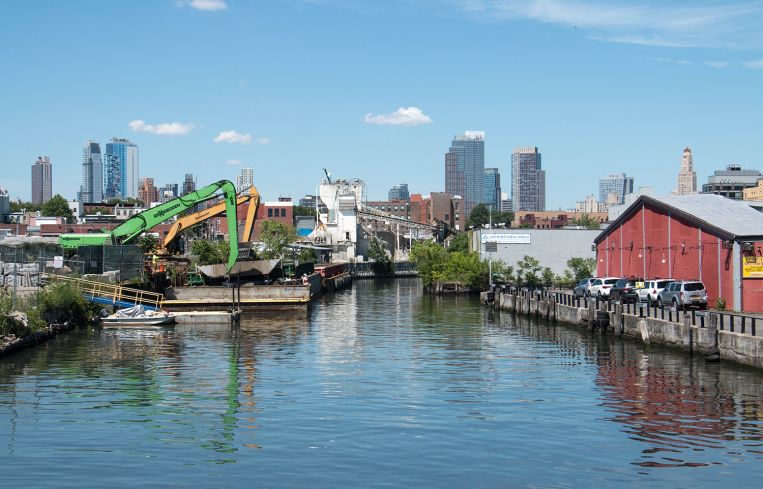City Seeks to Throw Out Lawsuit Holding Up Gowanus Rezoning
By Nicholas Rizzi March 17, 2021 6:29 pm
reprints
New York City wants a judge to throw out a lawsuit holding up the Gowanus, Brooklyn, rezoning — one of Mayor Bill de Blasio’s most ambitious rezoning plans — arguing that a new executive order negates a community group’s claims that the process requires in-person meetings, court records show.
Lawyers for the city filed a motion in Brooklyn Supreme Court asking a judge to dismiss the lawsuit filed by Voice of Gowanus that argued that online public hearings on Zoom for the Gowanus rezoning were illegal and inequitable, Crain’s New York Business first reported.
City law requires that the local community board conduct public hearings on rezoning in a “convenient place of public assembly,” but the city switched to Zoom as the coronavirus pandemic spread and forced New Yorkers to remain home.
Voice of Gowanus sued the Department of City Planning in January claiming that “virtual hearings are simply no substitute for in-person hearings” and added that residents without access to reliable internet were not able to participate.
In the meantime, judges temporarily halted the public review process for the rezoning, only allowing the city to release the text of the zoning application.
The city previously responded that participation was much higher in online meetings than in-person ones, and argued in its most recent filing that de Blasio’s executive order allowing land use meetings to be held remotely nullifies the provisions cited by Voice of Gowanus’ suit.
“We’re urging the court to dismiss this case because there is no legal basis to support these claims,” Nick Paolucci, a spokesperson for the New York City Law Department, said in a statement. “Virtual meetings held during the pandemic make sense, have increased participation among the public in the land use process, and are 100 percent justified under the mayor’s executive order. This litigation is preventing community voices from being heard and is delaying the creation of jobs, housing, open spaces, and a number of other community amenities.”
De Blasio’s administration has been working on a rezoning of Gowanus — a semi-industrial neighborhood known for its heavily polluted canal — since 2013, and finally released a framework for it in 2019. The new zoning would cover 80 blocks between Park Slope and Carroll Gardens, and allow 8,200 new apartments, 700,000 square feet of commercial space and 251,000 square feet of community facilities to be built on land currently zoned for industrial use.



